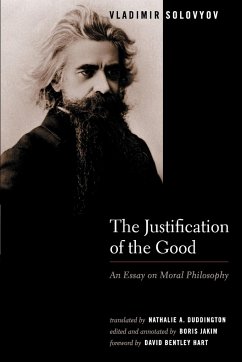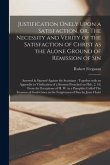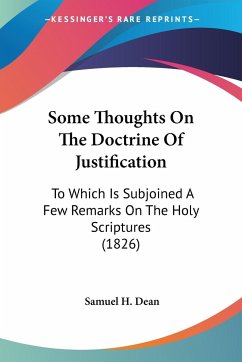After passing through deism, pantheism, and sundry atheistic visions of life, Vladimir Solovyov emerged as a Christian thinker of irrepressible conviction and uncommon genius. "The Justification of the Good," one of Solovyov's last and most mature works, presents a profound argument for human morality based on the world's longing for and participation in God's goodness. In the first part of the book Solovyov explores humanity's inner virtues and their full reality in Christ, weaving his moral philosophy with threads drawn from Orthodox theology. In the second part Solovyov discusses the practical implications of Christian goodness for such areas as nationalism, war, economics, legal justice, and family. This edition of "The Justification of the Good" reproduces the English edition of 1918 and is the only new publication of this work since that date. The book includes explanatory footnotes by esteemed scholar Boris Jakim and a bibliography, compiled by Jakim, of Solovyov's major philosophical and religious works.
Hinweis: Dieser Artikel kann nur an eine deutsche Lieferadresse ausgeliefert werden.
Hinweis: Dieser Artikel kann nur an eine deutsche Lieferadresse ausgeliefert werden.





![Justification by Faith Alone in the Merits of Christ [microform] Justification by Faith Alone in the Merits of Christ [microform]](https://bilder.buecher.de/produkte/66/66158/66158331m.jpg)


